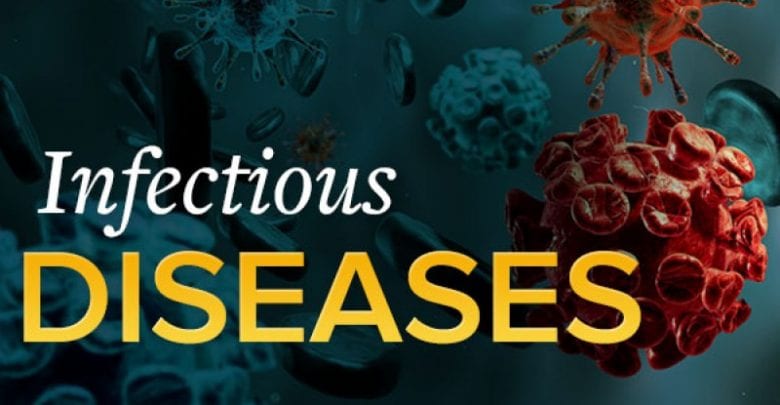
One of Nigeria’s most controversial lawmakers, Dino Melaye has revealed 19 reasons why the infectious disease bill and the National health emergency bill should not be passed. Melaye represented Kogi West Senatorial District in the 8th assembly and was involved in different legal and oral battles following his stance on national issues.
He is one of the major critics of the infectious disease bill sponsored by Speaker of House of Representatives, Femi Gbajabiamila.
A court of jurisdiction has, on May 13, ordered Mr Gbajabiamila, the Clerk of the National Assembly, the Clerk of the House of Representatives, the Attorney General of the Federation and the Inspector General of Police, to all appear before the court, on May 20 on further clarification of the bill.
Mr Delaye in his latest article on Sunday, however, gave some reasons why the bill must not be passed. In this report, POLITICS NIGERIA looks at some of the reasons listed by the former Kogi lawmaker.
1. The provisions in the bill are likely to conflict with the provisions of the Constitution, especially the chapter IV of the Constitution, which deals with the fundamental rights of Nigerians.
2. Mr Melaye said section 5 of the National Health emergency Bill 2020, currently pending before the Senate of the National Assembly, which provides for forceful medical examination and which also criminalises refusal by anyone to be subjected to forceful medical examination, is anti-people, dehumanising, degrading and likely to infringe upon the fundamental rights of Nigerians.
3. Section 6 of the Bill which subjects an individual on mere suspicion of having an infectious disease, to forceful medical treatment or examination is also dehumanising and likely to infringe upon the fundamental rights of Nigerians.
4. Section 8 of the Bill, with respect to the forceful release of health information of citizens by medical personnel, will also likely infringe upon the fundamental rights of citizens.
5. Section 11 of the Bill provides for the destruction of food, animals on mere suspicion by the Director-General. Such powers to destroy food and animals on mere suspicion without scientific examination or verifiable test are likely to infringe upon the fundamental rights of Nigerians.
6. Section 13 of the Bill provides for the detention of persons on mere suspicion of having an infectious disease. This provision will also likely breach the fundamental rights of Nigerians as provided for, in the Constitution.
7. Section 15 of the Bill, which provides for forceful medical examination and compulsory acquisition of properties is also likely to breach the fundamental rights of Nigerians.
8. Section 16(1) of the Bill which provides to the effect that if in the opinion of the Director-General, a building is overcrowded as to expose the occupants therein to a risk of infectious disease, by not providing a guide, as to how the Director-General can form such opinion, the powers as donated by the said provision are likely to be abused.
9. Sections 16(6) and 20(5) of the Bill which make the decision of the Minister final, is likely to infringe upon the right of access to court by the citizens of Nigeria.
10. Section 17 of the Bill, which provides for the forceful closure of premises without a court order, is not only draconian in nature but also likely to infringe upon the fundamental rights of Nigerians.
11. Section 19 of the Bill is also likely to infringe upon the rights of Nigerians to freedom of association, mainly as the powers donated therein are not limited to the period in section 3(1) of the Bill, which deals with the declaration of public health emergency by the President.
12. Sections 28,29 and 43 of the Bill, which subject any person upon exit from or arrival in Nigeria, to forceful vaccination and medical examination, is also dangerous and likely to infringe upon the fundamental rights of Nigerians. This more so, as the provision, was not limited to the period wherein the President has declared a public health emergency in section 3(1) of the Bill.
13. Subjecting Nigerians forcefully to unknown vaccinations against unnamed diseases as provided for in section 46 of the Bill, is also, likely to breach the fundamental rights of the Nigerians.
14. Section 53(1a) and 54(1b) of Bill which provide for the forceful entry into the privacy of citizens’ homes, without a lawful order of a court of competent jurisdiction, is likely to infringe upon the fundamental rights of Nigerians.
15. Section 54(3b) of the Bill which criminalises refusal, upon the arrest of an individual to talk, is in conflict with section 35(2) of the Constitution which provides for the right of a person arrested to remain silent.
16. Arresting a person for refusal to be subjected to forceful medical examination and treatment any time the DG wishes, outside the period of declared public health emergency in section 3(1) of the Bill, is anti-human and likely to infringe upon the rights of Nigerians.
17. Section 60 of the Bill gives the DG unlimited powers during the periods of emergency without limiting defining such powers. This power is likely to be abused, except it is checked.
18. The exclusion of liability for the conducts of the Director-General and other officers under him, as provided for, in section 69 of the Bill, is also unconstitutional.
19. The minister by section 74 of the Bill is given the powers to amend the Bill, which powers are the exclusive reserve of the National Assembly.
20. It is against the rule of law and constitutional provisions, for the minister to limit the application of the provisions of the Bill to certain persons he deems fit as provided for in section 75 of the Bill.
